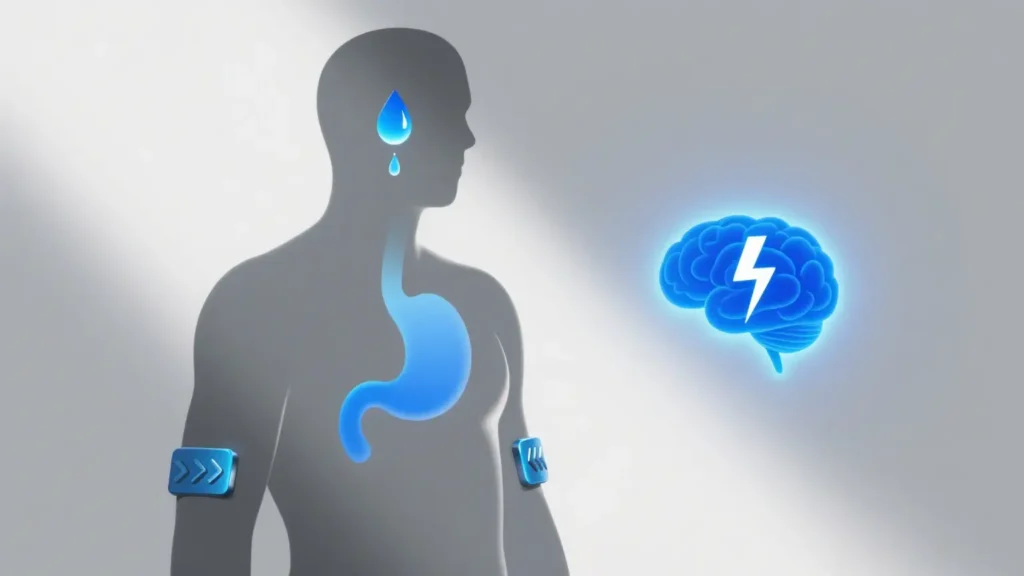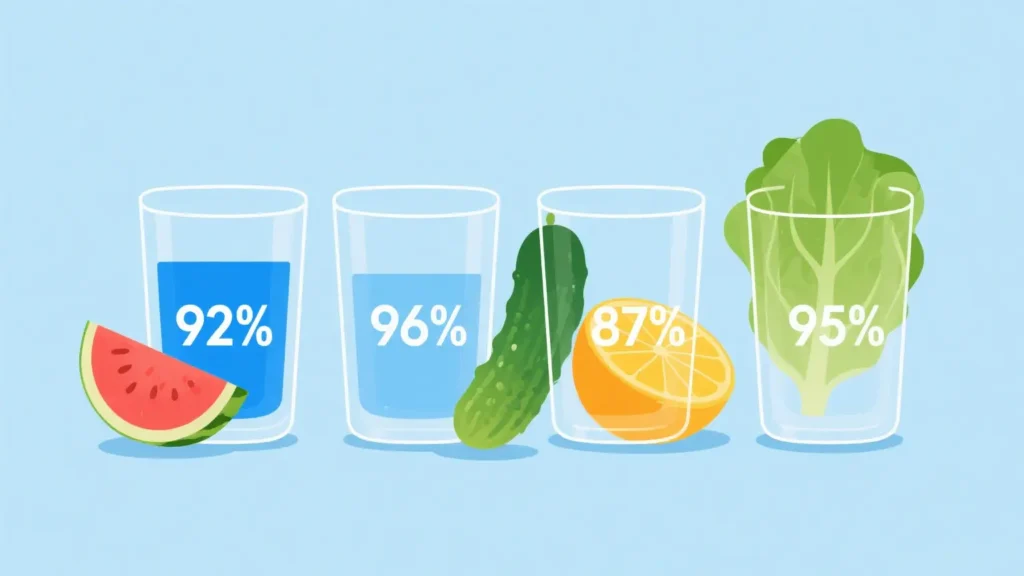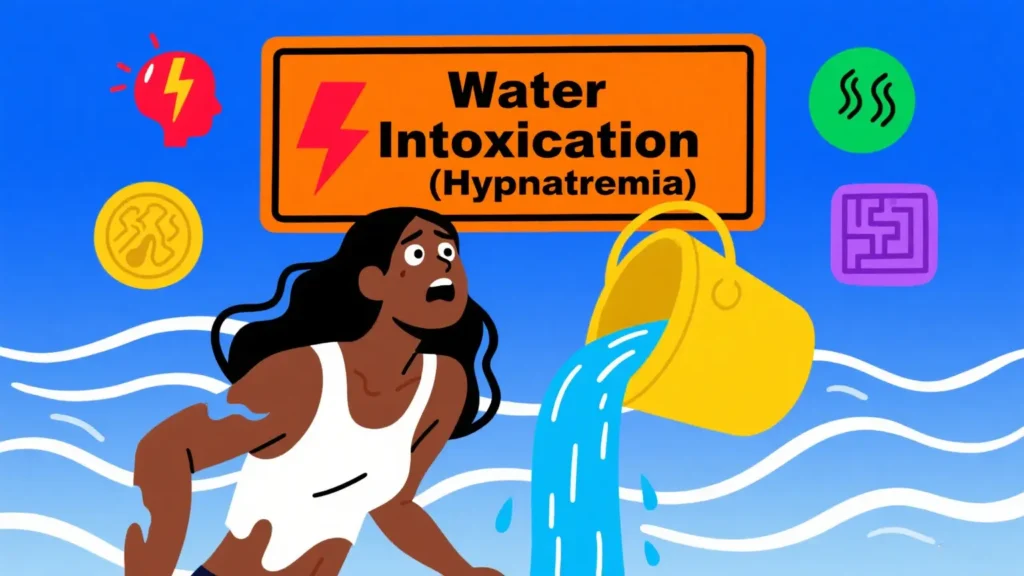We all have certainly been told many times to “Drink eight glasses of water a day.” This is one of the most often recommended health tips but is it correct? Is it that everybody has the same water intake, no matter their age, the exercise they do, or the climate they live in?
Actually the quantity of water you should drink daily is the result of taking into consideration a lot of aspects. Although it is known for a fact that being hydrated is healthy, not everyone is the same, and there is not a single standard approach that applies to everyone. In this article, we are going to discuss what your body requires in the real sense of the word, how to find out your own daily water intake, and the best ways to achieve it. That is to say, we will discuss how to keep the process of hydration optimal without overwatering yourself. Are you in the mood for some water science? Let’s get started and see how much water you should drink each day.

Why Hydration Matters
Water is the underlying factor of life. It is about 60% of the human body and is a great participant in every single function that happens there due to the critical role it plays in the body’s overall well-being. Staying hydrated is the least we need to sustain ourselves for:
- Regulating body temperature
- Lubricating joints
- Aiding digestion and nutrient absorption
- Flushing toxins from the body
- Supporting brain function and energy level
- Maintaining healthy skin and organs
Dehydration is quite quickly reached and that condition can give way to some issues such as a headache, sickness, fatigue, your skin becoming rough, mental confusion, dizziness if you need to shelter or you cannot regain concentration. If a person has long-term or severe dehydration it could result in the development of diseases perhaps better to get diagnosed early, increased likelihood of the formation of kidney stones, and malfunctioning of the cardiovascular system.
Can Eight Glasses of Water a Day Rule Be Regarded as Factual?
The “8×8 rule” that involves drinking eight 8-ounce cups of water a day (equaling roughly 2 liters) is a well-known standard. This begs a question, though—what was the source of this information? Surprisingly, there’s no solid scientific evidence to support this suggestion. It is very likely that the 1945 report of the U.S. Food and Nutrition Board, which said that adults require 2.5 liters of water a day, started this idea. However, it was also emphasized that a major part of this liquid could come from the food they consume and other sources.
The proposition was remembered, and it was more convenient to say “8 glasses” instead of the full statement. Even though a great starting point, individual water needs can still vary greatly according to a variety of factors:
- Body size and weight
- Activity level
- Climate and environment
- Diet
- Health conditions
Therefore, while eight glasses can be regarded as a good base, they are not a one-size-fits-all solution.
One’s Water Needs—How to Tell?
Instead of being content with generics, you may calculate the amount of water you need based on your weight. There is a simple formula that is widely used and generally accepted based on the weight of the person:
Your weight (in pounds) × 0.5 = Daily water intake in ounces
As an example, if your weight is 150 lbs:
150 × 0.5 = 75 ounces per day (about 2.2 liters)
If you would rather use metric figures:
Your weight (in kg) × 30–35 = Daily water intake in milliliters
Thus, for instance, a 70-kg person will have to consume about 35 × 70 = 2,450 ml (or 2.45 liters) per day.
This amount is not a fixed one and is likely to fluctuate depending on your strength of activity, surrounding environment, and governing factors, we are going to cover further in the next part.
Things that Impact How Much Water You Need
1. Physical Activity
The more you move, the more water you need. When you work out, especially if it’s warm or humid, the need for liquids can be several times as high as it normally is. Hence, athletes or those engaged in occupational activities need to be updated with the water requirements so that an additional intake of at least 500 to 1,000 ml per day, according to the level of exertion, is guaranteed.
2. Climate
If you live in a region with a hot and arid climate or a very high altitude, your body will remove more water from the body, especially through sweating. Thus you will need to drink at least 0.5 to 1 liter of water less under normal circumstances, so that under high-temperature conditions an additional 0.5 to 1 liter increase is necessary to you.
3. Diet
Consumption of excessive salty, spicy, and protein-rich foods will cause your body to demand more water for the processes involved in the removal of the excess substances. Diuretic effects of alcohol and caffeine will also have the same thing happening to your body’s fluid requirement.
But on a different note, by eating foods that are high in water content like cucumbers, watermelon, celery, lettuce, and oranges, you can easily increase your hydration. Subsequently, approximately 20% of the total fluid intake of a person is taken in from food daily.

4. Health Conditions
Illnesses, such as fever, vomiting, diarrhea, or urinary tract infections, are the types of diseases that increase your dehydration risk. Similarly, individuals with certain health problems, like diabetes, kidney disease, or heart failure, have their own hydration requirements, which they need to check with a health professional for advice.
5. Pregnancy and Breastfeeding
During pregnancy and lactating periods, women especially would need more fluids than usual. According to the U.S. National Academies, pregnant women need 2.4 liters (10 cups) and breastfeeding mothers need 3.1 liters (13 cups) of water per day respectively.
Can You Drink Too Much Water?
Definitely—and it happens to be extremely rare, but it can indeed occur. When you overhydrate yourself, you get a condition known as hyponatremia, a situation where sodium concentration in the blood reaches a point of hazardous dilution. Symptoms include nausea, confusion, and headaches, and in more serious cases, seizures or coma.
In the majority of cases, those affected by hyponatremia are either the ones practicing endurance sports or the people who consume in a short span of time substantial amounts of liquids through force.
To prevent this, you should know your body and spread your water intake evenly throughout the day. Don’t finish a liter in one go, unless you are replacing lost sweat or the weather is too hot.
Smart Tips to Stay Hydrated All Day
When you don’t take enough fluids, it could mean that you are too busy or absent-minded to remember that you need to drink water. Even if you realize the amount, you may have difficulties following your plan. The following are practical suggestions to keep you well-hydrated consistently:
1. Start Your Morning with Water
As the first thing, drink a glass of water after you wake up. It will help your metabolism to get to work and the lost liquids during the night will be restored.
2. Carry a Reusable Water Bottle
When water is easily accessible to you, it will lead to more consistent sipping during the day. Select a bottle with signs of volume pasted on the sides so that you are aware of how much you have taken.
3. Set Reminders
You can set your phone alarms or use hydrating apps like Plant Nanny, My Water, or WaterMinder to assist you in drinking water every hour.
4. Flavor Your Water
If plain water feels too ordinary, you can try making it more interesting by using lemon, cucumber, mint, or berries. This strategy will undoubtedly appeal to your taste buds.
5. Pair Water with Habits
You can always couple water intake with your daily activities, such as either drinking a glass before eating or whenever you use your phone.
6. Eat Your Water
Hydrating foods, watermelon, strawberries, zucchini, yogurt, can become great accompaniments to your meals and thus promote your fluid intake.
Signs You May Not Be Drinking Enough Water
Dehydration is not always clear. Here are the most common warning signs you should pay attention to:
- Very dark yellow or stinky urine
- Tiredness and slowness
- Pain in the head or dizziness
- Mouth dryness and chapped lips
- Feeling constipated
- Less urine output
- Acne breakouts or extremely dry skin
A very simple test for the level of hydration is to pay attention to the color of urine. If it is pale yellow, everything is okay, whereas more vivid shades indicate that you need to quench your thirst.
Conclusion: Listen to Your Body and Drink Smart
How much water we should drink every day is not a fixed figure. For example, the 8-glass rule is only the starting point which would be more of a convenience. The best way to hydrate is an individual approach. The factors like body size, lifestyle, environmental conditions, eating habits, and health condition all together make up the volume of water when considering your optimal intake.
Hydrating oneself does not have to be intricate. By simply being conscious and maintaining constancy, you make yourself capable of establishing a pure water drinking habit that can be a source of energy and good health. The habit benefits a lot, among other things, the process of digestion and clarity of the mind.
So, what is the ideal daily quantity of water to drink?
… Enough to stay active, energetic, and fresh and still assist the body in performing its functions correctly. Your body has a built-in mechanism that tells you when it’s thirsty. Learn to pay attention to these cues, and you are ready to move on to smarter hydration.

FAQs
Q: Is it true that everyone requires 8 glasses of water each day? A: It is not a must for all. Even though that’s an easy-to-remember rule, one’s water intake might be very different due to their body size, physical activity, the environment, and the food they eat.
Q: What is the formula for calculating the amount of water I need? A: A simple equation: weight (in pounds) × 0.5 = water (in ounces) per day. In metric: weight (in kilograms) × 30–35 = millilitres/day.
Q: Is it possible to drink too much water? A: Absolutely. Overconsumption of water can cause hyponatremia, which results in low blood sodium. It is infrequent but feasible, particularly if you drink too much in a short time.
Q: Do tea or coffee count as part of my daily water intake? A: Sure they do. Even though these stimulants have a diuretic effect on the body, they continue to be categorized as sources of the total amount of fluid taken.
Q: What are the symptoms that I may be dehydrated and not taking enough water? A: Among the most common: dark-colored urine, mouth dryness, energy levels dropping, headache, and being constipated. These are all signs of dehydration.